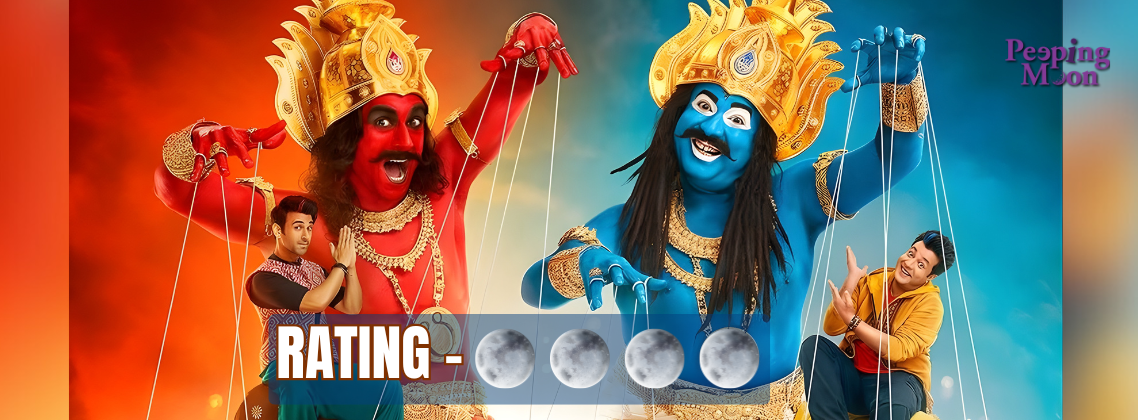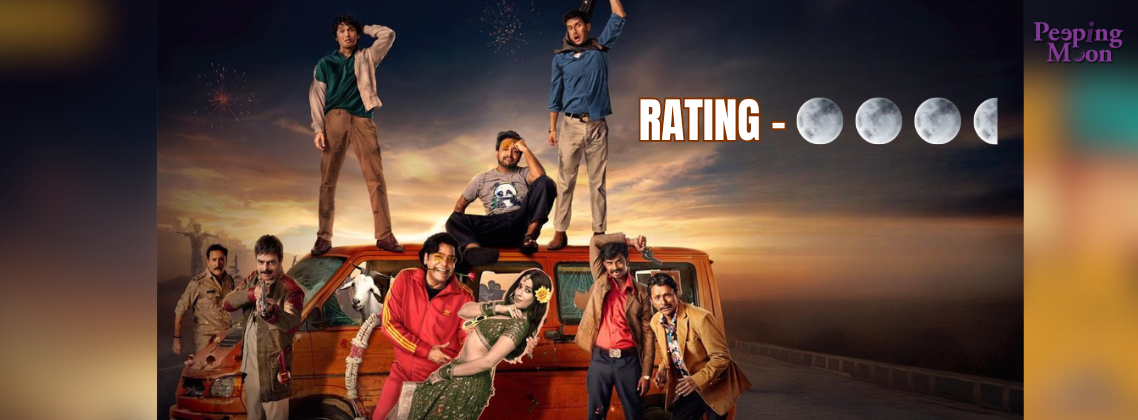The year 2020 was expected to be an exciting year for the Hindi film industry. From Aamir Khan's Laal Singh Chaddha to Salman Khan's Radhe, Ajay Devgn's Maidaan, and Ranbir Kapoor's Brahmastra and Shamshera, the last year of the decade had so many big-budget event movies to skyrocket the box office business. However, while penning down the year-ender story, we have only a handful of movies that released in theatres and only one commercial blockbuster (Ajay Devgn and Saif Ali Khan's Tanhaji) to credit— thanks to the COVID-19 pandemic that brought the entire world to a standstill for a majority of the year.
The global pandemic affected every single business and the Hindi film industry was not an exception. It shuttered the theatres across India overnight after the Indian Prime Minister Narendra Modi announced a 21-days lockdown to cease the spread of the deadly virus in March. The three-week blockade turned out to be months long forcing people to stay home after the cases increased all across the nation. Theatres were no longer functioning, production of the movies and shows were immediately stopped and the projects that were gearing up to go on floors were indefinitely postponed.
.jpg)
The film industry was squeezed to survive with zero revenue for seven months. Although the shootings have now resumed and theatres have reopened with 50% capacity allowed, the film industry is believed to have suffered devastating losses that it will take at least a few years to stand on its feet again. "The losses have been huge. Nobody can be blamed though for this but everybody had to go through the bad patch. Talking statistically approximately 80% of the box office earnings have been wiped off from the books. Numerically we are sitting at losses of 3,500 crores for the year 2020," said the trade analyst and Complete Cinema magazine editor Atul Mohan. Film producer and eminent trade business analyst Girish Johar pointed out that the number could be even bigger if we count the production sector loss. "There were so many films that were planned to go on floors but were either delayed or shelved due to the lockdown. If we count that the losses would be roughly 400-500 crores higher than our estimation."
"These losses can not be recovered in the next five years," added exhibitor and distributor Raj Bansal. "The worst hit by the corona lockdown are the theatre owners and especially single screens. There are chances that over 100-200 cinemas may down shutters permanently. The main issue is when will this fear of pandemic get over. If it continues until March/April 2021, well God bless us."

With theatres no longer being an option for people seeking entertainment, the Indians deprived of outdoor activities turned to OTT platforms that were earlier consumed mostly by only urban audiences. People started opening up to the new content on their laptops and mobile phones on streaming services like Netflix, Amazon Prime, and Disney+Hotstar among others. These platforms worked like compensation for the shortfall in the big-screen entertainment and viewers didn't mind lapping up this experiment. The lockdown blurred the lines between cinema and OTT with SVoD (Subscription Video on Demand) services registering around 55-60% year-on-year growth in India, according to the annual Media and Entertainment report by the Boston Consulting Group (BCG) along with the Confederation of Indian Industry (CII).
This year was sort of a game-changer, especially for the film industry that relies heavily on theatrical revenue. As viewers turned to digital platforms for their daily dose of entertainment in the absence of cinemas, the premium OTT platforms also upped their movie acquisition game and bought dozens of films that were originally supposed to release in theatres to stream directly on their respective platforms. Filmmakers unable to hold on to their finished projects sold their movies for direct digital release, bypassing the age-old theatrical window system. More than 24 movies are said to have gone to OTT over the past few months including some big-ticket films such as Akshay Kumar's Laxmmi, Varun Dhawan's Coolie No.1, and Ajay Devgn's Bhuj: The Pride of India which would have collectively earn at least 500 crores at the box office had it released in theatres.
.jpg)
However, the unprecedented boom of the digital platforms is not going to dissuade cinema viewers from going to the theatres. "It would be wrong to say that people have lost the habit of going to cinemas. The situation was such that we all didn't have any other option but to consume entertainment digitally. Cinema was and will always be the ultimate destination for entertainment," Atul Mohan said. Girish Johar is confident that people will throng to theatres once the pandemic is over. "Presently it's a catch-22 situation as audiences are scared. Pandemic is still there, the vaccine is not out yet, the money to spend on entertainment is also less, and lastly, the good, big films are missing. People are tired of sitting at home. They want to step out, enjoy social life. All they want is normalcy back," he said.
However, the fact can not be ignored that it would be a difficult task to bring back the audiences who have now been exposed to multiple mediums of entertainment. The Corona aftereffect can be easily seen with the underperformance of the Hindi films released so far. It's been over two and a half months since theatres reopened in India but the cinemas are still struggling to survive in the lack of fresh content. Some of the small-budget films have been released but that's making no difference as audiences in metro and urban areas are not willing to step out for content that's not compelling enough.

"Paying audience is reluctant to watch smaller movies as they don't find it worth their hard-earned money. Pandemic has left many people jobless, savings have been wiped off. They are struggling for survival. It will take some more time when the whole cycle gets back to as it was," Atul Mohan said further adding that the path doesn't seem rosy for the year coming ahead either. "First three months we shouldn't be expecting much. As the year progresses and if find some control over the virus then things will gradually start getting better. But I don't think we should be expecting big numbers to come and we should also not be discussing numbers. The priority should be to get back into the game."
The Hindi film industry surprisingly hasn't announced the release of any tentpole movie only delaying the process of recovery. The big-ticket offerings such as Akshay Kumar's Sooryavanshi and Ranveer Singh's '83 have been ready for months but stand postponed until Pan-India reception is guaranteed. The makers are not releasing these films amid the fear that it could be labelled as box office disasters. Theatres have hardly any content to be displayed at the moment.

"In this tentativeness-laden scenario, single screens and smaller multiplex chains in India wait eagerly for some announcement. When theatres were closed, announcements regarding films releasing on OTT platforms came in thick and fast. But the same level of urgency is evidently absent when it comes to theatrical announcements. Tamil and Telugu industries have been more proactive in putting out some teasers and dates, but there’s been complete silence from their Hindi counterparts," said Shailesh Kapoor, the founder, and CEO of the media consulting firm, Ormax Media, in his recent column. "While one can understand the scepticism regarding the potential loss of business a big film can suffer if it releases “too early”, someone has to simply take the plunge for the larger good of the industry. Otherwise, the case for smaller theatres to permanently shut down will become stronger by the week. And that damage may last years, not months."
With Bollywood unwilling to release the big-ticket movies, theatre owners across India are pinning their hope on Hollywood and South Indian languages films to Kickstart the next year. Christopher Nolan's Tenet that hit theatres early this month is believed to have given a kind of restart to the cinema business with the recently released Wonder Women movie further triggering a change in gear. "Tenet and Wonder Woman have performed decently which clearly shows that audiences want to come back. So the moment a good Hindi blockbuster will come on to the screen audiences will be happy to return. A little rough patch now but a very strong road ahead for the big screen entertainment. No two words on that," signed off the optimistic Johar.



.jpg)







